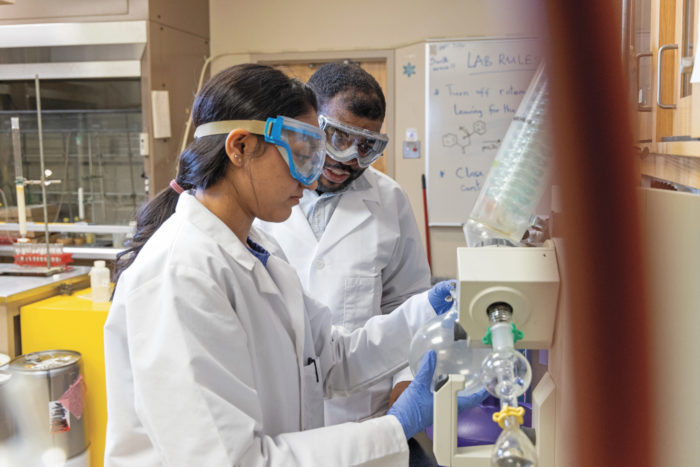People with diabetes face a heightened risk of heart attack, stroke, eye and kidney problems, and other health complications.
Some treatments for the disease can cause even more side effects, leading researchers around the world to explore better options.
Timothy K. Beng, an associate professor of organic chemistry at Central, is helping expand the possibilities for diabetes treatment by synthesizing a library of nitrogen-containing compounds that could form the basis of future medications.

“As we speak, about 70% of diabetes medications have nitrogen in them … so this lends credibility to the type of molecules that we want to work with,” he said.
Sometimes, scientists find medically useful molecules in plants. However, Beng says, this limits potential treatments.
“As synthetic chemists, we’re entrusted with the responsibility of saying, ‘Look, this is all nature can do. What can we do better?’” he said.
By making molecules in the lab, Beng also can sustainably create significant amounts of the compound, providing more material for other researchers and future drug developers to work with.
When Beng synthesizes molecules with potential, he hands them off to collaborators at Central and universities in Indiana, Louisiana, and North Carolina, who study their biological activity and toxicity.
Meanwhile, he collaborates with researchers who are investigating whether the compounds could be useful in treating other diseases. For example, he plans to work with researchers in Cameroon who study Leishmaniasis, a tropical parasitic disease that has been historically neglected by the scientific community.






comments powered by Disqus